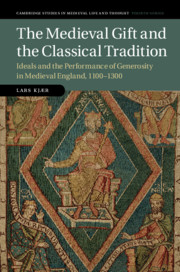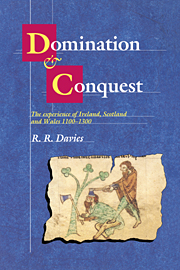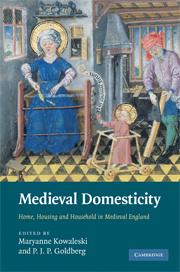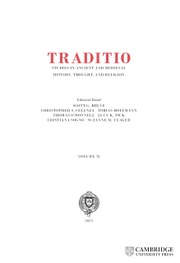The Medieval Gift and the Classical Tradition
This interdisciplinary study explores how classical ideals of generosity influenced the writing and practice of gift giving in medieval Europe. In assuming that medieval gift giving was shaped by oral 'folk models', historians have traditionally followed in the footsteps of social anthropologists and sociologists such as Marcel Mauss and Pierre Bourdieu. This first in-depth investigation into the influence of the classical ideals of generosity and gift giving in medieval Europe reveals to the contrary how historians have underestimated the impact of classical literature and philosophy on medieval culture and ritual. Focusing on the idea of the gift expounded in the classical texts read most widely in the Middle Ages, including Seneca the Younger's De beneficiis and Cicero's De officiis, Lars Kjær investigates how these ideas were received, adapted and utilised by medieval writers across a range of genres, and how they influenced the practice of generosity.
- The interdisciplinary approach enables a new understanding of the role of generosity in medieval culture and political life
- Explores the connections between ritualised communication in medieval Europe and that culture's intellectual traditions
- Provides a strong foundation for comparing the culture of gift giving in medieval Europe with those studied by social anthropologists in other parts of the world
Product details
October 2019Hardback
9781108424028
234 pages
235 × 157 × 18 mm
0.47kg
Available
Table of Contents
- 1. Introduction
- 2. The gift in classical literature
- 3. De Beneficiis in medieval contexts
- 4. Writing generosity
- 5. Sanctifying generosity
- 6. Romancing generosity
- 7. Performing generosity
- Conclusion.







